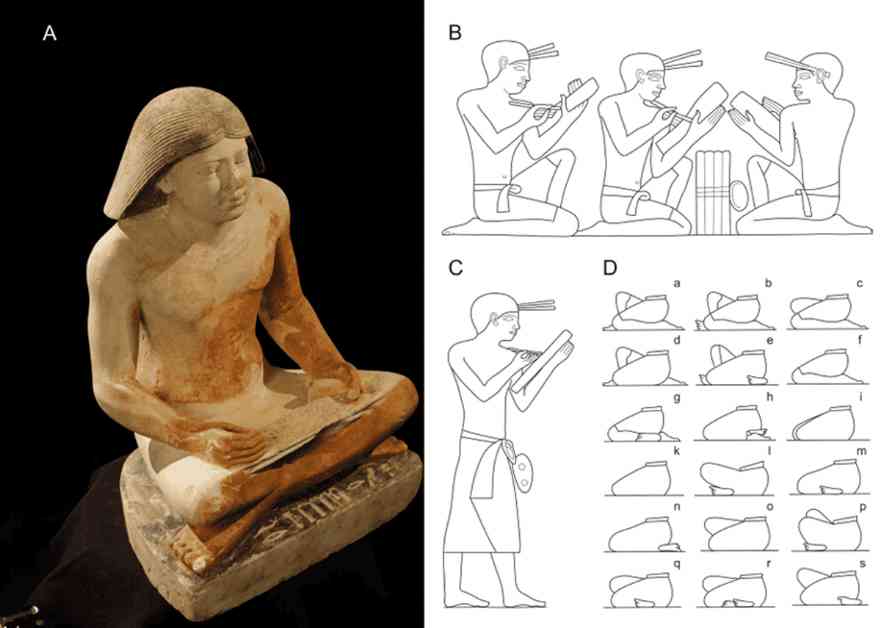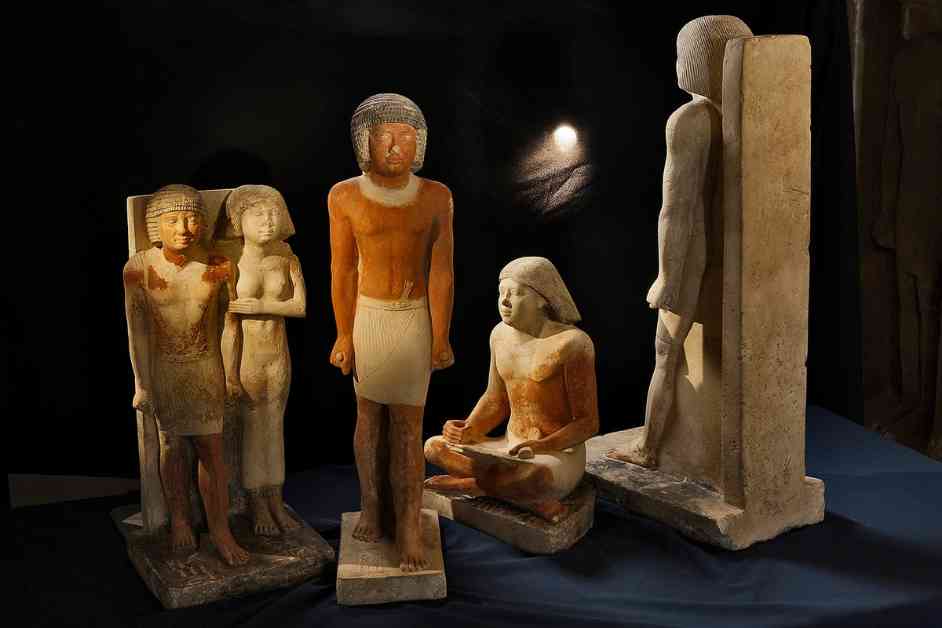Office jobs have become a common part of modern life, with many people spending hours sitting at desks and using computers. While this may seem like a safe and comfortable way to work, it can actually have negative effects on our health. Prolonged sitting in awkward positions and repetitive hand movements can lead to musculoskeletal issues like neck, shoulder, and back pain.
Surprisingly, the occupational hazards associated with desk work are not new. Anthropologists from Charles University in Prague discovered that ancient Egyptian scribes faced similar challenges to modern office workers. By studying the skeletal remains of 69 adult males from the Old Kingdom necropolis at Abusir, they found that scribes had many joint malformations that were not present in other occupations.
These skeletal changes included damage to various joints in the body, such as the jaw, collarbone, shoulder, thumb, knee, and spine. The researchers also observed physical stress indicators in the humerus and hip bones of scribes, along with indentations on kneecaps and flattened bone surfaces in the ankle.
Ancient Egyptian scribes held prestigious positions in society, serving as the keepers of knowledge and culture. They were highly skilled individuals who were responsible for recording important information like tax collections and religious texts. Only a small percentage of the population was literate at the time, highlighting the importance of scribes in Egyptian life.
Scribes underwent extensive training in hieroglyphics, mathematics, astronomy, and medicine from a young age. They were exempt from manual labor and enjoyed a high social status, but the new research reveals that their profession took a toll on their physical health. The unique postures they adopted while writing, such as sitting cross-legged or kneeling, contributed to the joint degeneration observed in their skeletons.
Historical depictions of scribes in statues and tomb decorations show them in these seated positions, as well as standing while working. The degeneration in their jaw joints may have been caused by chewing rush stems to create brush heads, while thumb issues could have resulted from repetitive pen pinching.
The findings of this study shed light on the challenges faced by ancient Egyptian scribes and raise new questions about the occupational health of historical populations. This research was published in the journal Scientific Reports, providing valuable insights into the lives of these ancient office workers.






